Building Trust: Infrastructure Transparency in Kaduna and Sekondi-Takoradi
Public infrastructure is one use of public resources that is popular with citizens and policymakers alike. Although infrastructure projects at the national and local levels are required by legislationCreating and passing legislation is one of the most effective ways of ensuring open government reforms have long-lasting effects on government practices. Technical specifications: Act of creating or r... to promote transparencyAccording to OGP’s Articles of Governance, transparency occurs when “government-held information (including on activities and decisions) is open, comprehensive, timely, freely available to the pub... More and ensure accountability, the process is often fraught with challenges such as corruption, mismanagement, and inefficiency, which can result in inflated costs, delays, unsatisfactory outcomes, and mistrust. Unless we can ensure that public infrastructure projects are transparent, participatory, and accountable, their contribution to inclusive socio-economic growth and additional benefits like meeting the Sustainable Development GoalsOGP countries are experimenting with open government innovations to accelerate progress on the Sustainable Development Goals, particularly SDG 16+ which includes peaceful, just and inclusive societies... (SDGs) will be undermined.
Sekondi-Takoradi, Kaduna State, and other OGP Local members joined the Infrastructure Transparency Initiative (CoST), recognizing the pivotal role of local governments in infrastructure provision. These cities have embraced CoST’s core principles of multi-stakeholder collaboration, disclosure, assurance, and social accountabilityTransparency of public service delivery is not enough on its own; giving citizens opportunities to monitor progress on the ground and hold their governments accountable improves the quality of these s... and have used their OGP action planAction plans are at the core of a government’s participation in OGP. They are the product of a co-creation process in which government and civil society jointly develop commitments to open governmen... to improve infrastructure transparency.
Empowering Citizens Through Infrastructure Data
In Sekondi-Takoradi, Ghana citizens faced challenges in understanding procurement processes and accessing information about infrastructure projects. The lack of transparency and accessible data hindered their ability to participate effectively in overseeing public infrastructure delivery to ensure efficient project outcomes.
As part of their OGP action plan, the Sekondi Takoradi Metropolitan Assembly (STMA) developed an open data portal – Online Disclosure Portal/Data Disclosure Platform – where data are disclosed on infrastructure projects in a consistent format, using the Open ContractingA transparent procurement process, known as open contracting, increases competition, improves public service delivery, and ensures governments better value for their money. Technical specifications: C... More for Infrastructure Data Standard (OC4IDS). This platform ensures that infrastructure data is published in an accessible and user-friendly format, improving stakeholder understanding.
The results were promising, and STMA convinced seven neighboring local governments in the Western Region of Ghana to publish data on their infrastructure investments on the portal. To date, the portal hosts data on 65 projects from 15 sectors, including educationAccountability within the public education system is key to improving outcomes and attainment, and accountability is nearly impossible without transparent policies and opportunities for participation ..., health, transport, water, and waste.
Once the data was opened and adapted to the OC4IDS, we developed and launched the Infrastructure Analytical Dashboard and Electronic Infrastructure Monitoring Tool, empowering stakeholders to scrutinize ongoing infrastructure projects effectively, holding governments accountable, and ensuring optimal value from public investments in infrastructure.
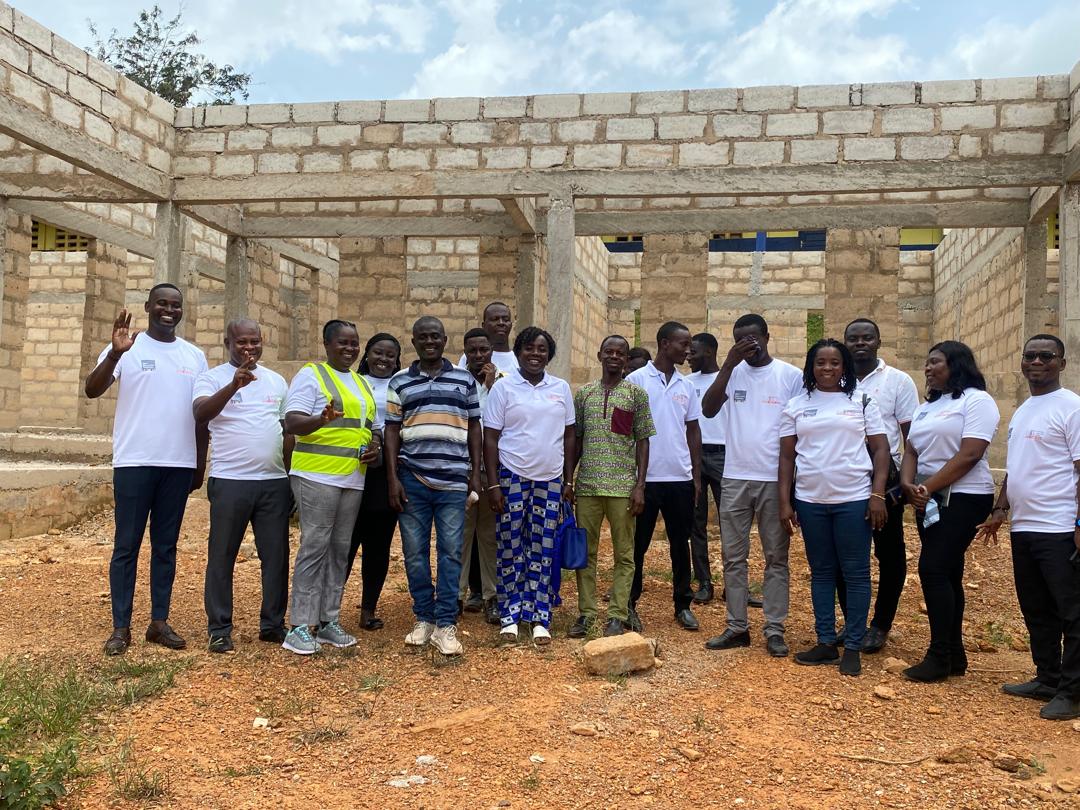
Finally, STMA formed the CoST District Citizens’ Monitoring Teams where citizens can oversee the projects, and established a platform for local leadership to interact with citizens and provide residents with vital infrastructure services. These platforms allowed the STMAto improve the quality and accessibility of infrastructure, including:
- Providing equipment for the Takoradi Library complex.
- Working with the Shama and Wassa East districts to revise project designs for district offices and schools to ensure disability-friendly access, including erecting guard railings, staircases, and disability ramps.
- Correcting misaligned culverts and cleaning major drains along a 1.6km road in Effia-Kwesimintsim Municipal Assembly.
- Instituting quality assessment tests and an internal policy for pre-site meetings with stakeholders before site handover to ensure proper housekeeping and promote safety on construction sites in the Tarkwa Nsuaem Municipal Assembly.
- STMA and Wassa East District Assembly made provisions for staircases and disability ramps to be created in a health facility.
Building Trust with Transparent Infrastructure Initiatives
It is estimated that to bridge the large infrastructure needs in Kaduna, Nigeria at minimum, the total projected expenditures for core infrastructure development interventions in key sectors of transportation, education, health, water and sanitation, and agriculture will amount to N20 trillion (13.8 billion USD). Infrastructure transparency and open data are key to mitigating risks of corruption, mismanagement, and inefficiency, as well as strategically positioning Kaduna to attract foreign direct investment and create jobs for citizens. For this reason, Kaduna has shown tremendous support for infrastructure transparency, as captured in the current administration’s SUSTAIN Blueprint.
As the first Nigerian local government to join OGP Local, Kaduna has made progress in disclosing procurement information through the Kaduna Open Contracting Data Standard Portal with technical support from the Public and Private Development Centre. Despite progress, infrastructure issues persisted, eroding trust between government, contractors, and civil society organizations. The government was concerned about the quality of public infrastructure implemented by contractors. Contractors faced delayed payments and institutional bottlenecks leading to incomplete projects. Civil society criticized the lack of comprehensive, and timely disclosure of infrastructure data needed for accountability
To address these concerns, Kaduna committed to implementing the Open Contracting Data Standard and the Open Contracting for Infrastructure Data Standard, following CoST’s approach, tools, and guidance as part of their third OGP action plan. These standards are instrumental in facilitating the publication of infrastructure data in a user-friendly format, enhancing stakeholder understanding, and enabling effective monitoring and reuse of the information.
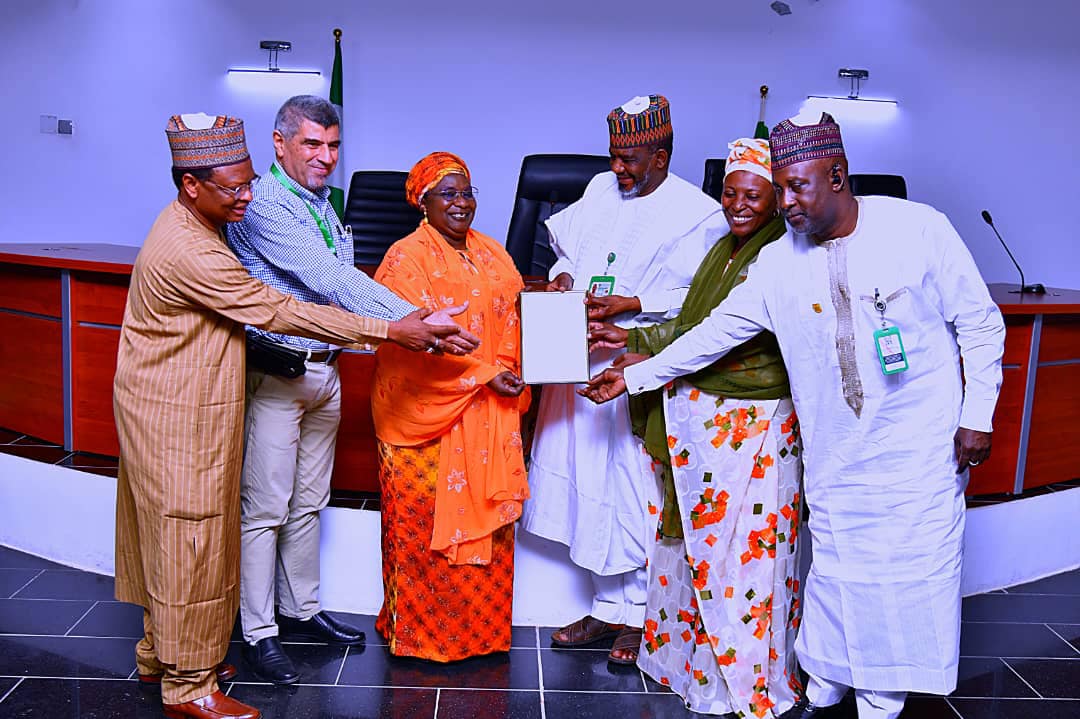
Credit PlaceholderPHOTO: Credit: Kaduna State
As the implementation of the commitmentOGP commitments are promises for reform co-created by governments and civil society and submitted as part of an action plan. Commitments typically include a description of the problem, concrete action... progresses, Kaduna is expected to see:
- Improved integrity and quality of infrastructure investments.
- Increased engagement and mobilization for infrastructure transparency.
- Reduced public sector irregularity through standardized data disclosure under OCDS and OC4IDS.
- Greater access, capacity, knowledge, and use of infrastructure data amongst stakeholders to track the performance of infrastructure projects.
- Efficient monitoring and analysis with systematic tools for monitoring and analyzing government spending and project execution to hold duty bearers to account.
- Improved market competition among private sectorGovernments are working to open private sector practices as well — including through beneficial ownership transparency, open contracting, and regulating environmental standards. Technical specificat... More players based on published infrastructure data.
- Effective service delivery across critical sectors like health, education, and water.
The experiences of Sekondi-Takoradi and Kaduna in implementing infrastructure transparency initiatives provide valuable lessons:
- Information communication technologies enable the standardization and interoperability support for publishing data on infrastructure projects.
- Common data standards and protocols ensure greater accessibility and comparability across different projects and countries.
- Collaboration and partnership with governments, civil society organizations, the private sector, and international organizations, are essential for successful infrastructure transparency.
- Engaging with a range of stakeholders, including civil society organizations, ensures infrastructure data meets diverse needs.
- Making infrastructure data open, and user-friendly allows citizens and civil society to monitor and evaluate projects effectively.
No comments yet
Related Content
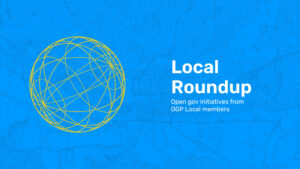
Local Roundup | June 2024
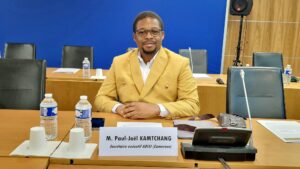 Champions
Champions
Faces of Open Government: Paul-Joël Kamtchang
Paul-Joël Kamtchang is a data journalist from Cameroon and is the Executive Secretary of ADISI-Cameroon. On African Anti-Corruption Day, he offers insights on how open data enhances transparency and accountability…

Lessons from Reformers: Kaduna, Nigeria Gives Citizens the Tools to Monitor Service Delivery
Read how reformers in Kaduna, Nigeria are empowering citizens to monitor major government projects and help the government plan and allocate funding for those projects more efficiently

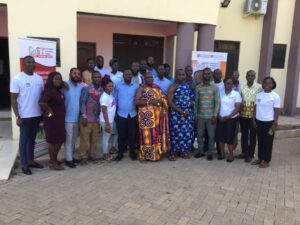
Leave a Reply